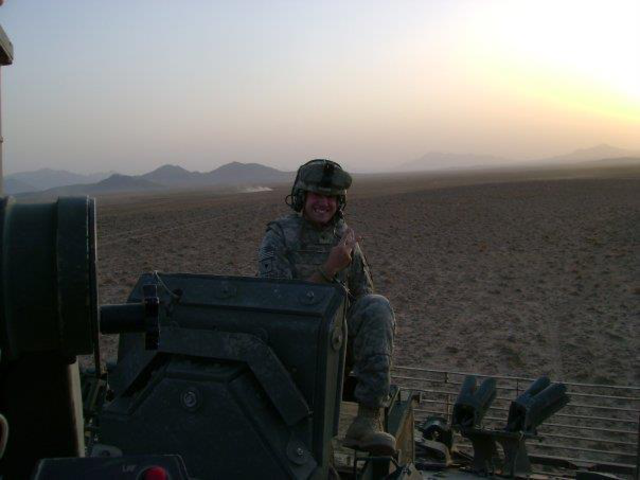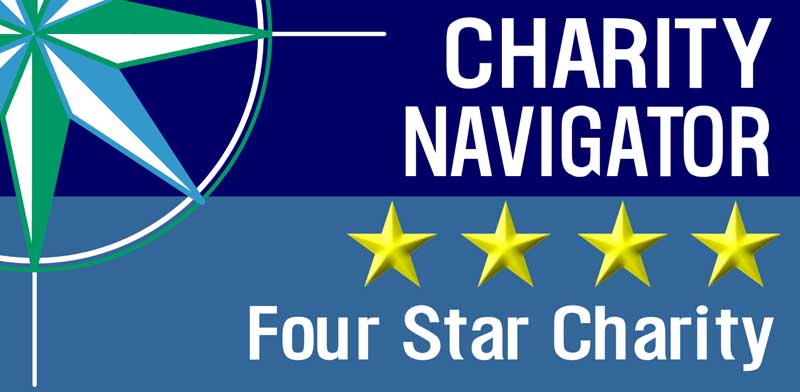Benjamin Breckheimer served as an operating room specialist and cavalryman before surviving a roadside bomb. Now, he works with the doctor who saved his life and has climbed the highest summit on each continent.
I had my first Fisher House experience in 2005 when I was assigned to the Brooke Army Medical Center (BAMC), now San Antonio Military Medical Center, in Fort Sam Houston, Texas.
As an Operating Room Specialist, my job was to assist medical staff and prepare patients and operating room environments for surgery as well as assist medical staff during surgery. In a nutshell: the doctor takes care of you; I take care of the tools and the sterile environment.
We treated service men and women who were coming back wounded, often missing limbs or suffering from significant burns over portions of their bodies.

I visited a patient who was from my own hometown of Menomonee Falls, Wisconsin. He told me about the Fisher House and how it provided a safe place for his family to stay. I didn’t know much more than that, and I didn’t imagine that I would be there years later.
I soon deployed to Iraq with the 10th Combat Support Hospital out of Fort Carson, Colorado. I spent a year at Ibn Sina Hospital in the Green Zone in Baghdad. It was one of the most rewarding years of my life, but also the most draining. I was 20 years old and had never seen an individual leave this world until Baghdad.
I will never forget my first casualty, one of our own uniformed members. I couldn’t help but think how unfair it was that these service members were out on the front lines while I was safe in the Green Zone. I felt I had to do more and I made the decision to change jobs to Cavalry Scout. That job would put me in the Army's 16.5-ton armored vehicle, the Stryker.
You know that saying be careful what you wish for? Well, I am a firm believer in it. In July 2009 I deployed with a Stryker Brigade, and on September 13th, I was driving a Stryker and hit a pressure-plate improvised explosive device. I suffered a concussion, a perforated eardrum, and multiple bone breaks including vertebrae and both femurs. My lower right leg was partially severed.

I tell people now that I am grateful for what had happened to me and that I remembered most everything. But that’s not how I felt in the moment. Imagine driving and hitting a brick wall and blacking out. As you come to, you choke on dirt, debris, oil, and gas thrown up by the bomb. On top of that, things are blurry, hazy. Everything is confusing.
I screamed. Not from pain, because the adrenaline took care of that, but to let everyone else in the vehicle know I was still alive. My lower body felt like it was trapped in a vice and gradually being squeezed to the bursting point.
I know all of this is an unpleasant thought, but I want to share how I felt. The pain came when a medic applied tourniquets to both thighs. I fought to stay awake. There’s that cliché in the movies: once you close your eyes you’re not coming back. I was able to keep myself awake until I entered triage and then emergency surgery at Kandahar Airfield. I had gotten to feel what it was like for my patients when I was an operating room technician, and I will never forget the fear.
Five days later, I was back at Brooke Army Medical Center and saw familiar faces from years before. The naive part of me didn’t know exactly what I was in for or how serious my wounds were until Dr. Joseph Hsu, my physician and a friend from my Iraq deployment, gave me the harsh reality of what had happened to me. I wasn’t returning back to Afghanistan to be with my brothers.
I spent four long years at the Warrior Transition Battalion at BAMC. The first few months were spent in a hospital bed, but then I was ready to leave the hospital and go to Fisher House which was much more comfortable. I spent November 2009 until Summer 2010 in Fisher House with various family members. Sadly, my wife and I split during this period. It’s a painful but common occurrence at Warrior Transition Battalions, and it makes the rest of our support network that much more important.

The Fisher House is a magical place. It provided my family and myself a place to stay in our time of need. By providing my family a place to stay, Fisher House Foundation eased the burden that my family faced after our unexpected trauma. While staying at the Fisher House, I had an immediate support system during the most difficult time of my life, and so did my family.
The environment provided by the Fisher House makes it a place where you gain new friendships and even additional members to your family. This support system, provided by the Fisher House, helps us mend and look forward. I am proud to say that I am just one mountain shy of becoming the first Combat Wounded Veteran to successfully climb the highest peak on each of the seven continents thanks to family, friends and Fisher House.













